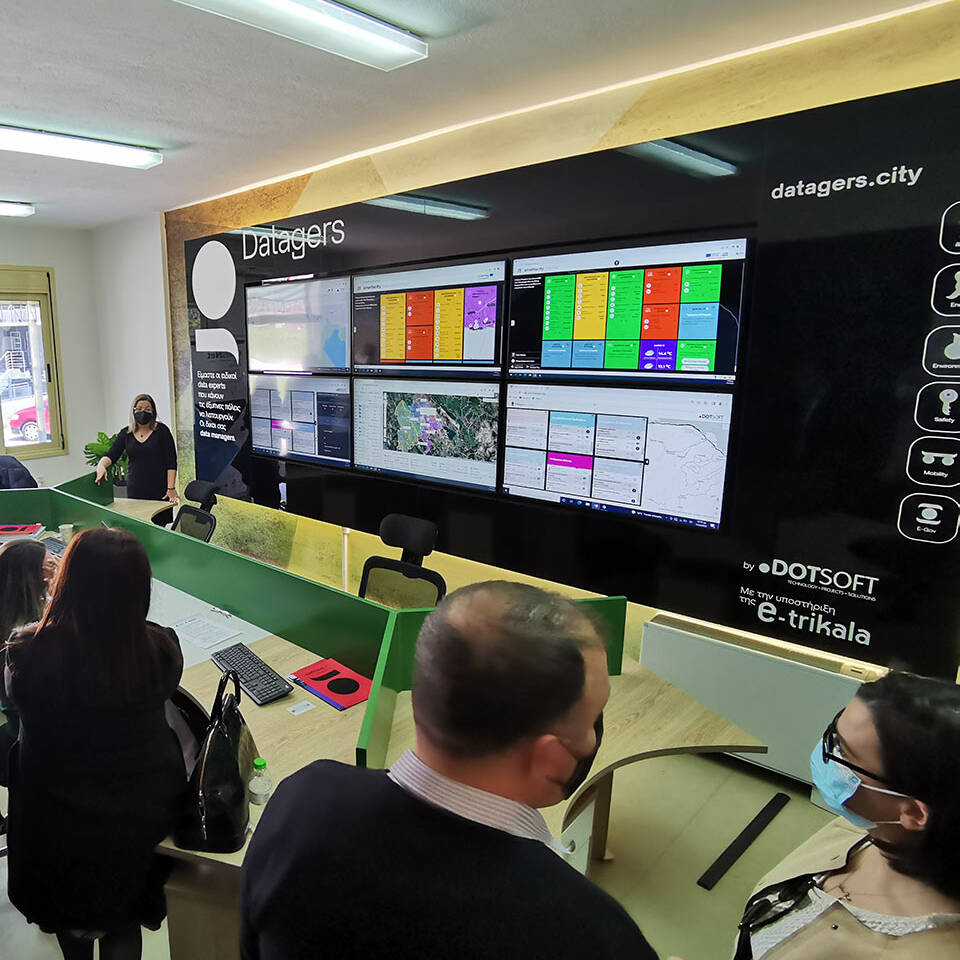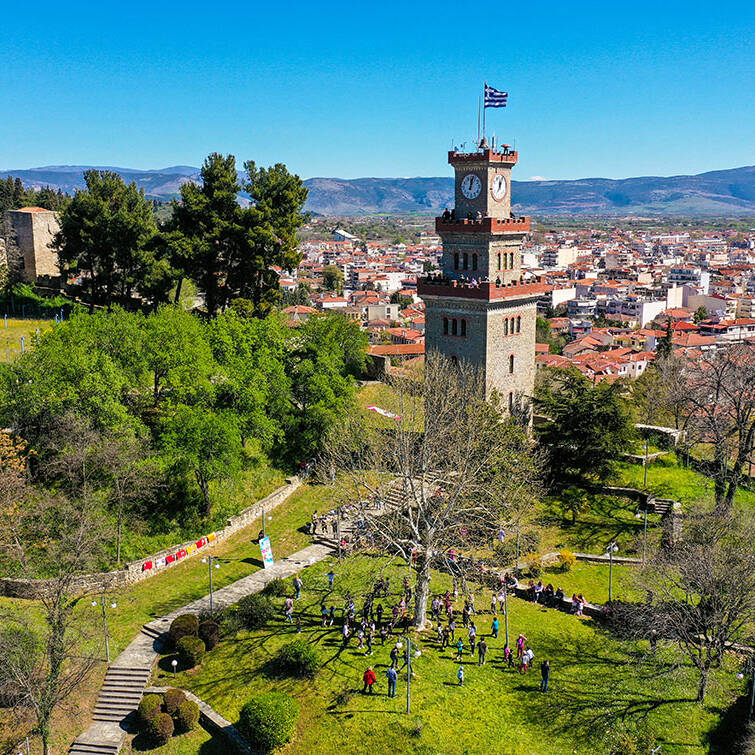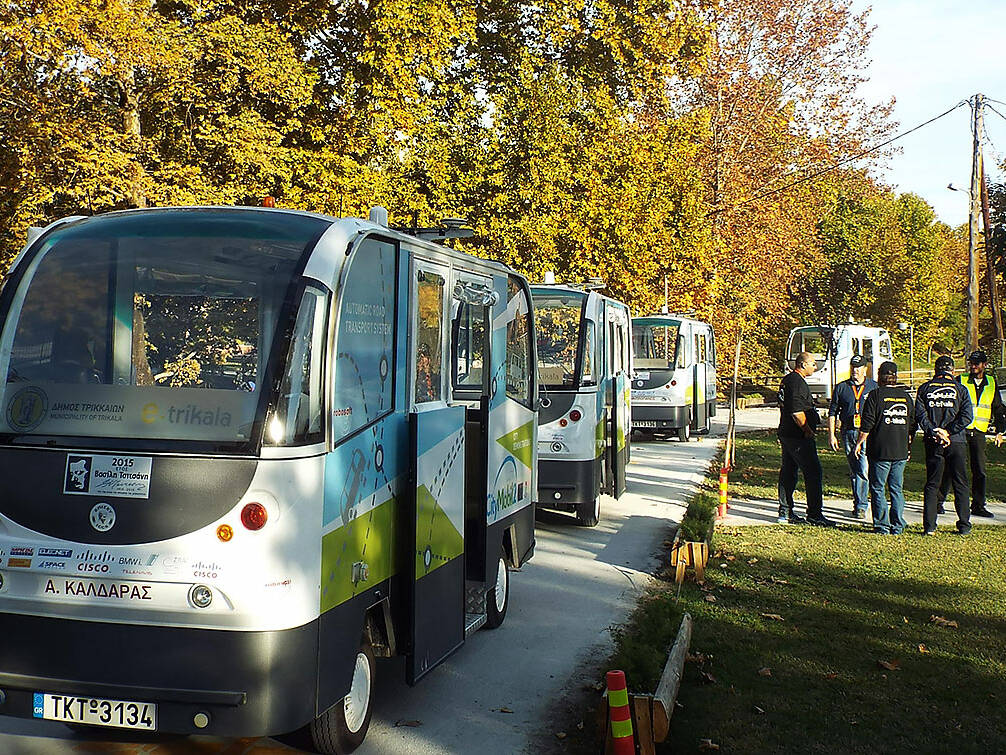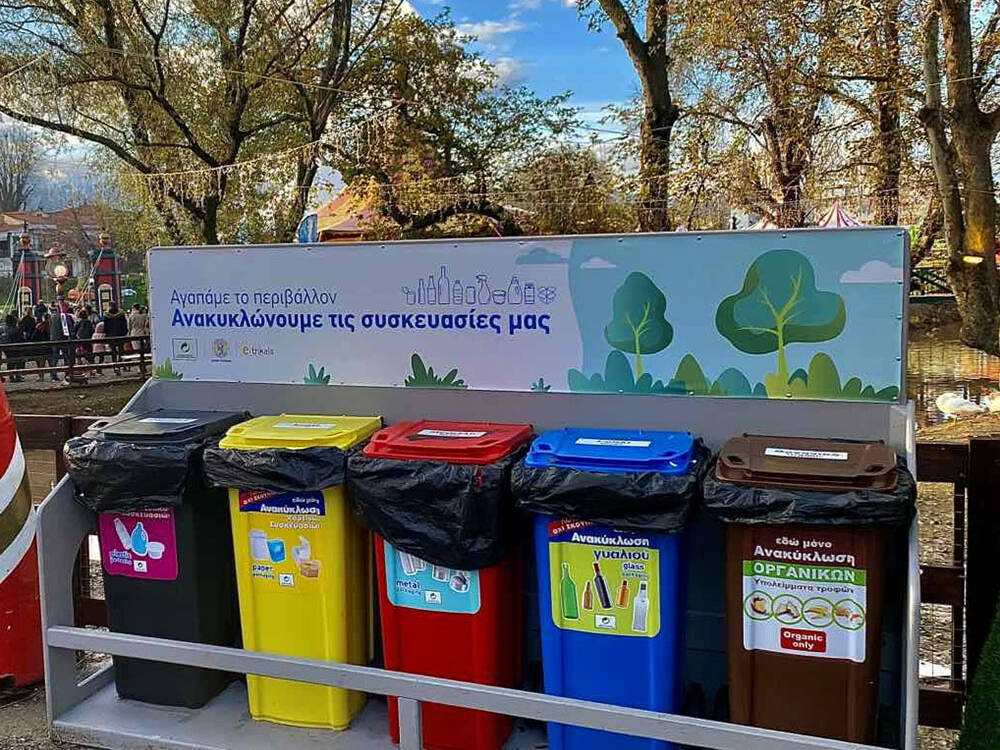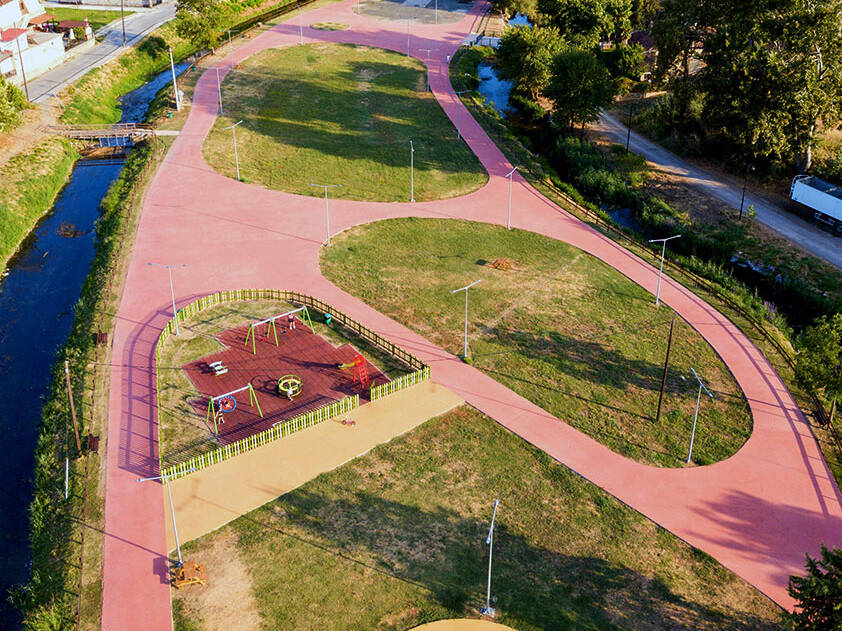Overview
Climate change poses one of the greatest threats to cities and modern societies, as it has numerous and far-reaching consequences. To mitigate its impacts, the adoption of environmentally friendly policies is necessary.
The city of Trikala is embarking on its green transition journey, aiming to minimize its carbon footprint and aspiring to become one of the first Greek cities committed to implementing a specific strategy towards climate neutrality. This initiative significantly improves the quality of life for citizens and creates the conditions for a sustainable city and a dynamic local economy.
Actions for climate and sustainability
Projects and strategies of the Municipality of Trikala for mitigating the impacts of climate change and promoting sustainable development
Climate Neutrality by 2030
The European Mission for «100 Climate Neutral and Smart Cities until 2030» by and for citizens.
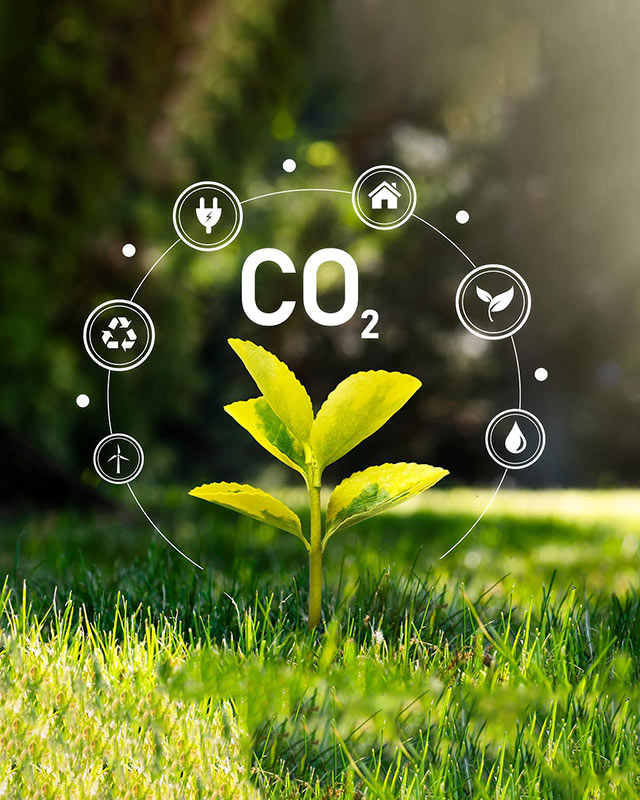
Greenhouse Gas Emissions Inventory
The Municipality of Trikala is committed to taking action to reduce greenhouse gas emissions, implementing initiatives aligned with environmental protection and the sustainability of the local ecosystem. With this perspective, the Municipality conducted a greenhouse gas emissions inventory for the reference year 2019, aiming to identify emission sources and develop strategies for their reduction.
This inventory serves as a crucial tool for shaping policies and measures that will contribute to reducing greenhouse gas emissions in our local area. Based on the results of this inventory, the Municipality can identify key sectors of activity associated with high emissions, as well as prioritize potential sources that need to be addressed.
Following the analysis of the inventory findings, specific measures are proposed to reduce greenhouse gas emissions. These measures include promoting the use of renewable energy sources in buildings and infrastructure, promoting public transportation and electromobility, as well as encouraging citizens and businesses to adopt environmentally friendly practices.
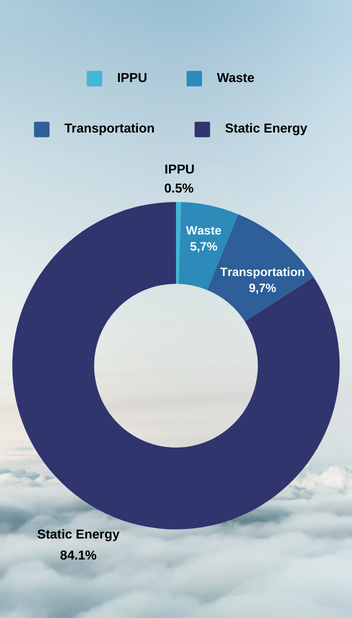
393.503 tones CO₂e
Static Energy
Buildings consume huge amounts of energy every day for heating, lighting and cooling, which results in the emission of gases such as CO2 and other pollutants into the atmosphere.
16.599 tones CO₂e
Waste
Waste management is an important issue linked to environmental pollution. The emission of harmful gases such as methane and CO2 burdens the environment and health every day.
45.198 tones CO₂e
Transportation
Transport is one of the most important factors in the production of pollutants. Every day millions of means of transport move emitting huge amounts of CO2 and other harmful gases.
2.419 tones CO₂e
IPPU
Industrial processes and the use of various products are important factors in the emission of harmful gases into the atmosphere, with serious effects on the environment and human health.

Trikala 2030 ⸻
Strategic priorities
57km²
Urban renovations
28km²
Energy upgrades
11mil €
ELECTRA Program
17km²
Bicycle network

Climate City Contract
With the Climate City Contract (CCC), the Municipality undertakes the commitment to take measures to reduce greenhouse gas emissions and improve environmental protection.
- Energy SystemsDecarbonization of electricity production, which is a significant goal for environmental protection, contributes to the reduction of CO2 emissions and the development of sustainable energy production models that respect the environment and support sustainability.
- Mobility and TransportConstituting a significant sector, with actions including promoting sustainable transportation modes, encouraging electromobility, improving transportation modes and interconnections, developing intelligent transportation systems, and promoting congestion-relief policies.
- Waste & Circular EconomyIncreasing recycling and reducing landfill waste disposal are critical steps towards protecting the environment and ensuring a sustainable future. Through recycling, many materials can be reused, and the amount of waste ending up in landfills can be reduced, thereby decreasing environmental burden and the risk of soil and water pollution.
- Green InfrastructureThey constitute a critical element of the Climate City Contract as they significantly contribute to reducing CO2 emissions. They include green spaces, trees, parks, bike lanes, and other elements that promote sustainable development and enhance the city's resilience to climate change.
- BuildingsThe energy upgrade of buildings is a crucial measure for reducing energy consumption and improving the quality of life for residents. It involves implementing energy-saving measures and using renewable energy sources to reduce energy consumption and operational costs of buildings.
- Smart CityTechnologies and innovative solutions are being implemented to improve the quality of life for city residents, effectively manage its resources, and promote sustainable development. Technology is integrated into every aspect of the city, from public buildings and transportation to healthcare and environmental management.
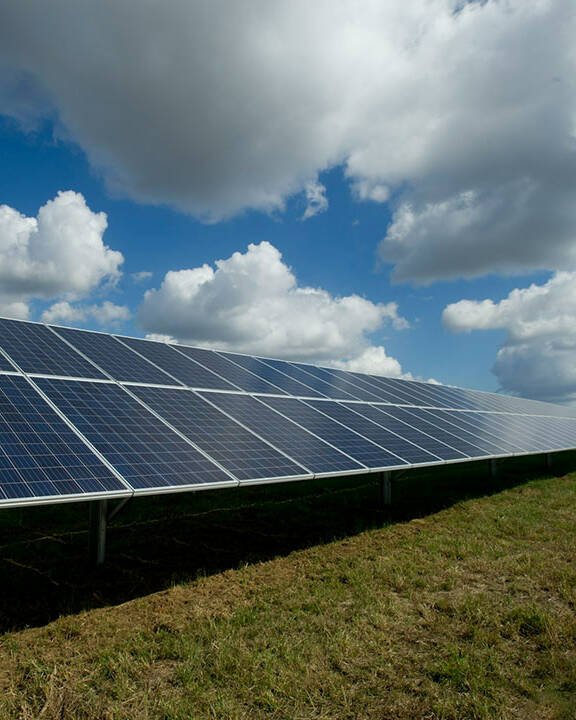



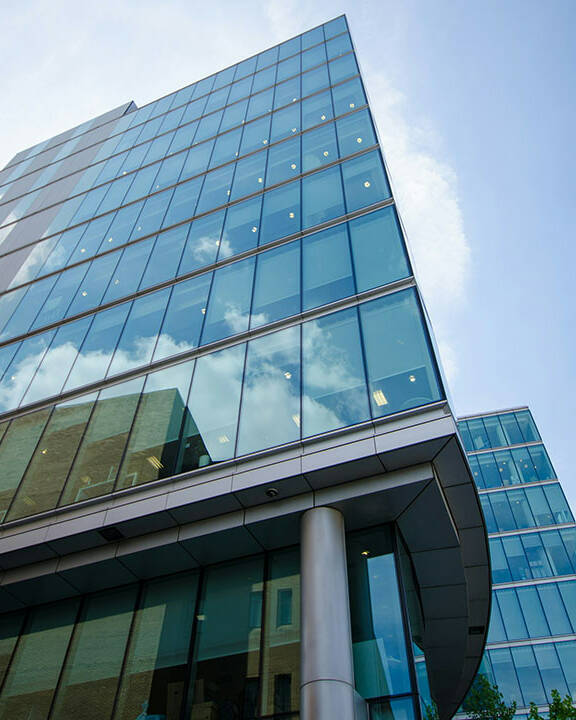

Latest News
Nothing found.

